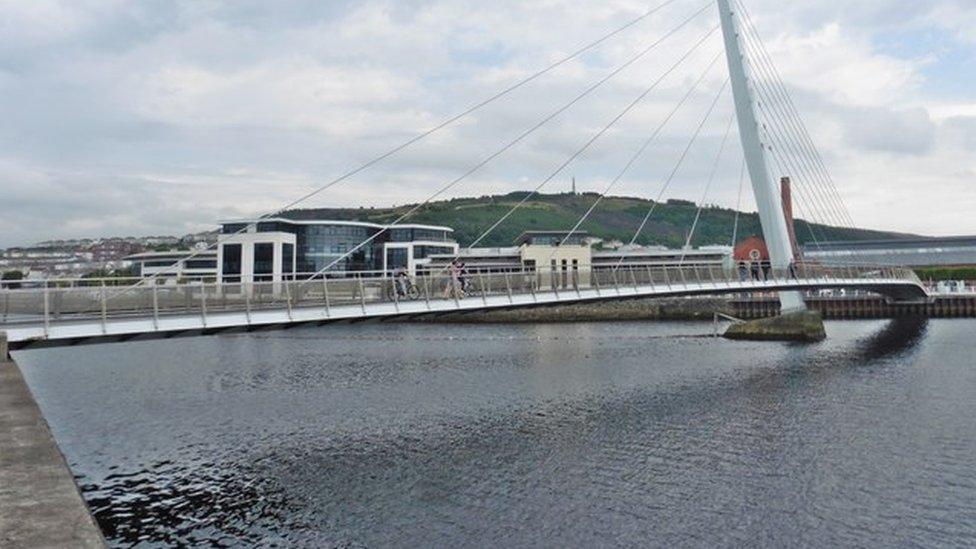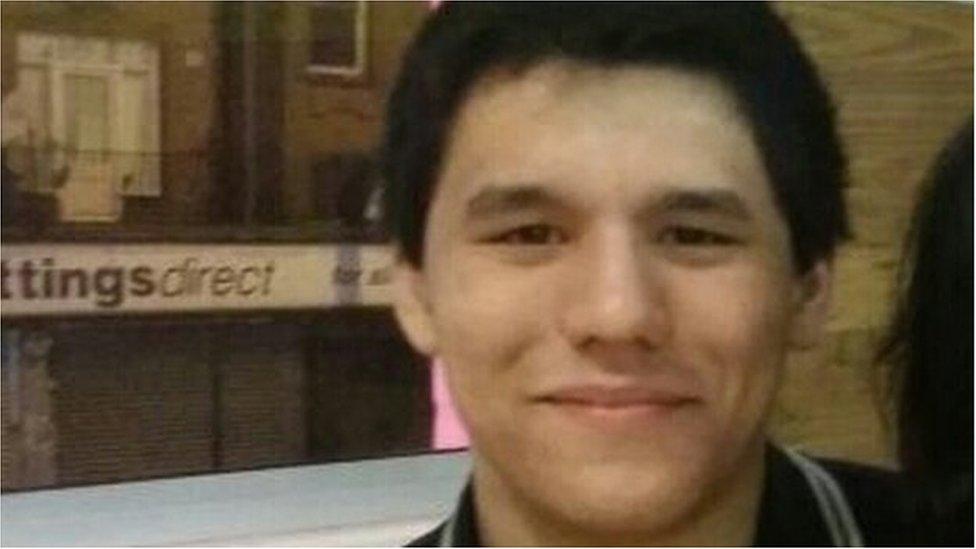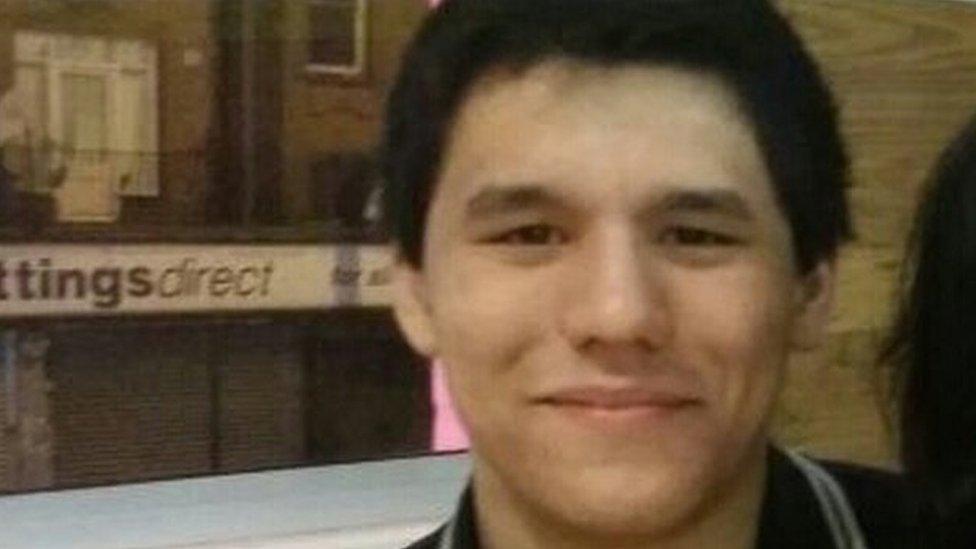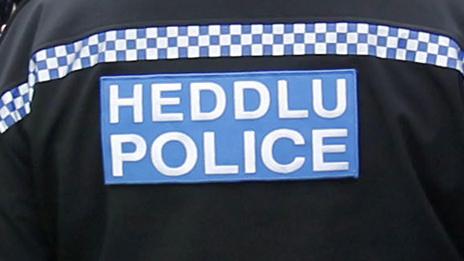Alexander Pavlou: No lifebelt 'contributed to river death'
- Published
Alex Pavlou handled "inadequately" by police before death
The absence of a lifebelt near Swansea's River Tawe contributed to the death of a 19-year-old student, an inquest jury has found.
Alexander Pavlou drowned in the river after being turned away from a nightclub in May 2015.
A narrative conclusion was given at the end of the inquest in Swansea in which a police officer was also criticised.
Mr Pavlou's family solicitor said his death highlighted the importance of lifebelts and their availability.
At the hearing in Swansea, the jury concluded that subsequent actions taken by a police officer who had come into contact with Mr Pavlou were "inadequate".
But they found the officer had no way of knowing of an "immediate and imminent" risk to his life.

The case has been referred to the Independent Police Complaints Commission.
During the early hours of 28 May 2015, Mr Pavlou was seen by eye witnesses in the Sainsbury's car park near Quay Parade.
The inquest heard he was approached by a police officer who noticed Mr Pavlou was intoxicated and had appeared to have urinated on himself.
He asked Mr Pavlou to walk behind his patrol car over to the petrol station forecourt.
In his evidence, the officer said he lost sight of Mr Pavlou in his car mirrors as he turned the corner.
The last sighting of Mr Pavlou was in the River Tawe by an eyewitness.
An attempt was made to help him but there was no lifebelt available in its holder.
The inquest heard by the time emergency services arrived, there was no sight of Mr Pavlou in the water.
His body was recovered from the river days later.

Mr Pavlou's body was found in the River Tawe in Swansea
The inquest heard Mr Pavlou had a heart condition but he was also a talented sportsman and a good swimmer.
In her evidence, Mr Pavlou's mother, Donnie Yuen, described her son as an academic achiever and not much of a drinker.
Following the inquest's findings, Mr Pavlou's family's solicitor, Geraint J Davies said: "Perhaps the sad fact of Alex's death can highlight to the public that removing lifebelt provision without good reason can cost lives.
"These issues are likely to increase in significance as more student accommodation is expected to open in central Swansea, and Alex's family's desire is to reduce the likelihood of other parents facing similar tragedies."
Before considering whether to issue an order against the council, potentially expressing his concerns about the provision of life buoys on the road bridge above the river, acting deputy coroner Paul Bennett said he would hear submissions from all parties by mid January.
'Regret'
He paid tribute to the family during the inquest process, adding: "I wish to apologise this matter has taken such an inordinate amount of time to reach this point."
Commenting after the inquest, a statement from Swansea council said: "Public rescue aids provided by the council are routinely checked a minimum of every four weeks with additional checks before school holidays and the coroner stated there is no evidence to suggest this is inadequate.
"The rescue aids in this area of the Tawe were inspected 10 days before Mr Pavlou's death and were found to be present and in working order.
"Regretfully these important pieces of equipment are on occasions stolen or vandalised."
The council would consider any recommendations made by the coroner, it added.
- Published13 November 2017

- Published12 September 2017

- Published29 May 2015
